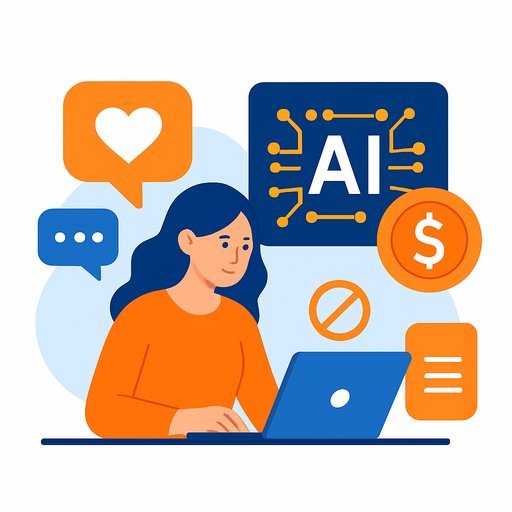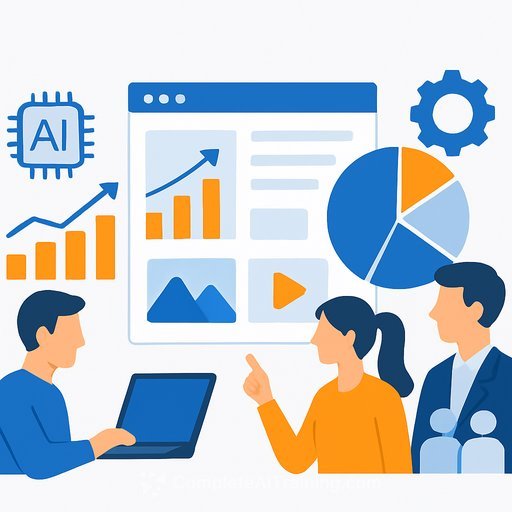Emotion, AI, and the Human Touch: Insights from Sébastien Félix of Influence Society
We spoke with Sébastien Félix, CEO of Influence Society, about how AI is changing hospitality marketing. Working with boutique and luxury hotels, he sees AI as a way to predict guest intent, speed up execution, and strengthen the emotional bond between brand and traveler. The point is not replacement. It is AI in the background, humans up front.
Key takeaways
- Emotion drives direct bookings. Build an "emotion stack" of stories, videos, and brand assets.
- Unified data enables real personalization. Fragmented systems limit what AI can do.
- AI delivers speed; humans bring authenticity. You need both.
- Marketing should shift focus to strategy. Let AI handle repetitive work.
- Adoption is cultural. Leadership and team empowerment make the difference.
AI + Design for "invisible" hospitality
Sébastien returns to one idea: create moments that feel effortless. A guest's flight is delayed. They arrive late. Check-in is quick, the room is ready, and a spa treatment is offered as a thoughtful gesture. AI anticipates intent; design makes the response feel natural.
Small properties can deliver this with personal attention. Scaling it across hundreds of guests requires AI to work quietly in the background while teams deliver the human touch.
Build emotion into direct channels
OTAs sell inventory. Your channels must sell meaning. That is why he pushes brands to build an "emotion stack" - cinematic imagery, authentic guest stories, and short videos that make the property unforgettable.
Your website can read micro-signals and adapt in real time. Replace generic CTAs with contextual prompts like "Plan My Anniversary." It feels personal, not transactional, and it moves people to book direct.
Personalization at scale requires unified data
Hotels sit on valuable data in PMS, CRM, loyalty, and social. The gap is connection. Large groups are making progress; many boutiques still struggle to unify systems and IDs.
AI is the missing link when the data foundation exists. It can predict needs, surface relevant offers, and propose personalized flows. Humans validate the scenarios, refine tone, and keep the brand honest.
Faster concept development with generative AI
What once took ten weeks can take two. "It will not replace humans; we will just do things much faster," said Sébastien. AI can cluster audiences, generate mood boards, forecast amenities, and create early visuals for interiors and F&B.
It can also map investment scenarios before you commit. Instead of one route, explore multiple directions and choose the one that fits your audience and P&L.
Content creation: AI's speed, human taste
AI drafts copy, creates visual variations, and brainstorms angles in seconds. That gives marketers more raw material and time to edit. Volume is not the point. "What we have as humans is taste and truth." Curation protects brand integrity.
AI assistants shift teams from production to decisions
Influence Society builds assistants that draft newsletters, analyze performance, and prepare first-draft proposals. The impact is clear: "I see a move from making assets to making decisions."
Let AI do the heavy lifting in the background. Teams focus on positioning, messaging, and how to connect with the guest at each step of the stay.
Simplify tech, choose channels guests already use
Not every tool improves the experience. Hotels sometimes over-engineer chat. In many cases, WhatsApp Business is simpler and more effective across markets.
He also sees promise in smart glasses and lightweight devices that record and summarize interactions. Front-desk teams could capture preferences, train faster, and keep service consistent. AR and VR may take time. AI is driving impact right now.
Jobs, skills, and the human factor
Some tasks will disappear. New ones will emerge. The real constraint is speed: can teams learn fast enough?
Leadership sets the tone. Managers should understand AI, encourage experiments, and create a feedback culture. Younger staff are already comfortable with digital tools. Give them the framework to use them well and safely.
Adoption barriers are cultural, not technical
The main obstacle is mindset. Cost and complexity are concerns, but once leaders involve teams, adoption gets easier. Overregulation is a risk, especially in Europe. Privacy and misinformation matter, yet heavy-handed rules could slow progress. For context, see the EU AI Act.
Practical first steps for hotel marketers
- Audit your data: Map where it sits across PMS, POS, CRM, and marketing platforms.
- Automate in small steps: Each team picks three tasks per week to offload to AI.
- Test one personalization feature: Contextual CTAs, dynamic room listings, or interest-based offers.
- Empower teams: Give freedom to test tools and share feedback in weekly reviews.
- Track daily opportunities: Keep a running list of repeat tasks for automation; patterns appear fast.
If your team is building AI skills for marketing, explore this focused resource: AI Certification for Marketing Specialists.
Design systems, not just campaigns
AI works best in the background. It captures signals, design translates them into action, and people deliver the emotion that makes a stay memorable. This is not about replacing staff. It is about giving teams the tools to personalize at scale, simplify complexity, and build stronger bonds between brand and guest.
The hotels that balance technology with humanity will create experiences guests never forget-and they will win more direct revenue because of it.
About Shiji Group
Shiji is a global technology company dedicated to providing innovative solutions for the hospitality industry, ensuring seamless operations for hoteliers day and night. Built on the Shiji Platform-the only truly global hotel technology platform-Shiji's cloud-based solutions include property management system, point-of-sale, guest engagement, distribution, payments, and data intelligence for over 91,000 hotels worldwide, including the largest hotel chains. With more than 5,000 employees across the world, Shiji is a trusted partner for the world's leading hoteliers, delivering technology that works as continuously as the industry itself. That's why the best hotels run on Shiji-day and night.
While its primary focus is on hospitality, Shiji also serves select customers in food service, retail, and entertainment in certain regions. For more information, visit shijigroup.com.
Your membership also unlocks:






